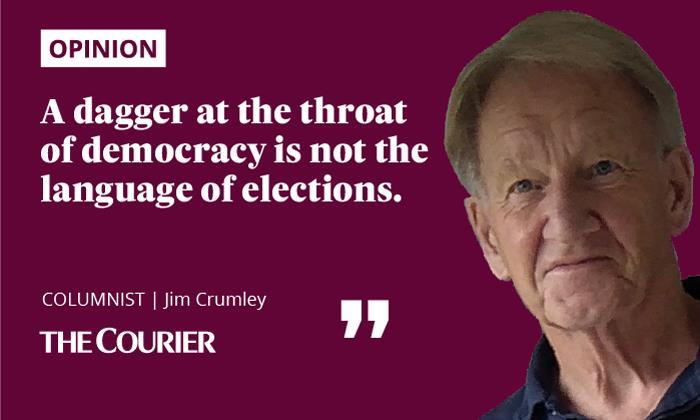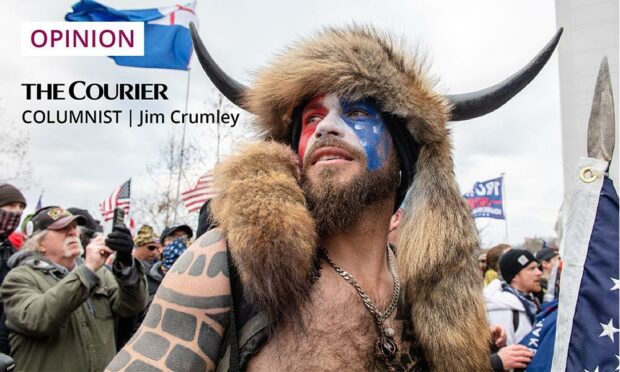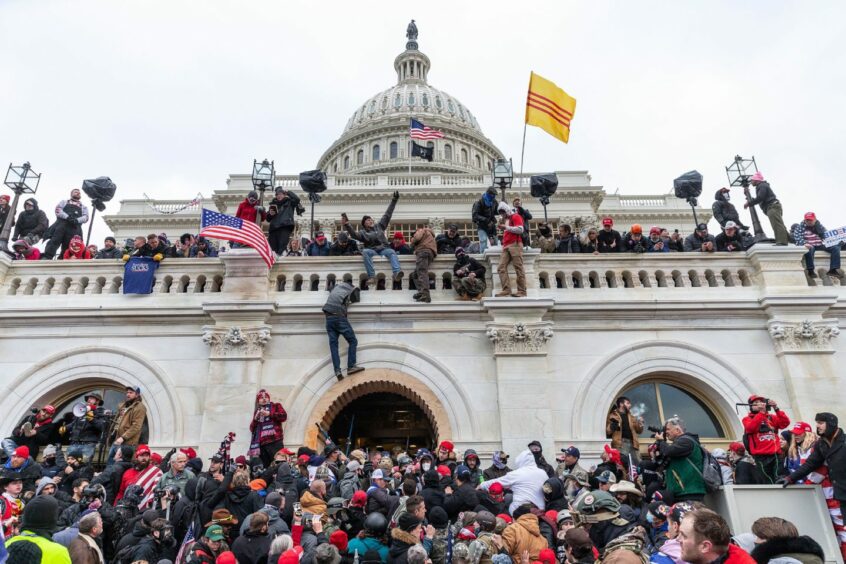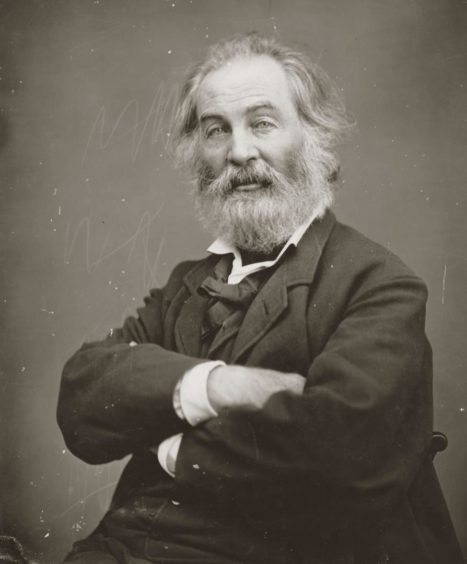I feel for America. A whiff of civil war is in the air, and that is exactly what they are calling it.
I don’t mean in the crazed minds of the far right of American politics where you might imagine there is a vested interest in promoting the concept.
But when the esteemed New Yorker magazine posed the question “Is a Civil War ahead?” last week, then it’s not just America that should be worried.
Now I have a lot of sympathy for an observation by Andrew Marr, sometime of this parish, who suggested in his fine book about journalism, My Trade, that whenever you read a headline couched in the form of a question, try answering “No” before you bother to read it.
But when not just the New Yorker but also the Washington Post and the New York Times all posed the same question within days of each other, the rest of us who care for democracy should, at the very least, read the article.

And when the bi-partisan instincts of President Biden were abruptly shelved last week with the words “I will allow no-one to place a dagger at the throat of our democracy”, no-one was left in any doubt what and who he was talking about.
American democracy is all of our business
Democracy, the cornerstone of the American constitution, looks suddenly at risk.
And an undemocratic America is the world’s nightmare.
Or at least it should be.
The anniversary of the Trump-fuelled assault on the Capitol seemed to re-focus minds on both sides of the great divide of American politics.
It’s a frontier across which the forces of democracy are trying to stare down something that looks awfully like armed-to-the-teeth terrorism.
“The United States, until January 6th, 2021, was considered the world’s longest standing democracy,” the political scientist Barbara F. Walter says. “It was downgraded to an anocracy after.” https://t.co/lGqa2qwUsL
— The New Yorker (@NewYorker) January 7, 2022
It is tempting to think that this is all about the elections, the mid-terms this year and the campaign for the next presidential election which seems already to have begun although Biden’s presidency is only a year old.
But it is not couched in the language of elections.
A dagger at the throat of democracy is not the language of elections.
Thoughts on an earlier civil war in America
I don’t know America. One three-week trip to Alaska 23 years ago is hardly typical.
But I have friends in New England and it’s no exaggeration to say that they are fearful.
And I know the America of jazz and the America of literature (including a vast and diverse and brilliant canon of nature writing) and there is so much about it to admire.
It is also capable of highly accomplished journalism, and it may yet be that rather than horn-locked politics that will provide its people’s best hope of clarity.
Not that there aren’t lunatic tendencies in the American media, but the very best of it is extraordinarily good.
If there is one voice that encapsulates all of the above, it is a poet, essayist and journalist who died 130 years ago.
Walt Whitman’s work has the particular merit in this context that he lived through the first and so far only Civil War, and wrote about it at length.
And two short poems encapsulate what seems to me to be at stake.
The first is simply called America, and given that it’s a late work written some years after the Civil War, its vision for his country is remarkably idealised, and remains as sublime an ambition for today’s America as it ever did:
“Centre of equal daughters, equal sons,
All, all alike endear’d, grown, ungrown, young or old,
Strong, ample, fair, enduring, capable, rich,
Perennial with the Earth, with Freedom, Law and Love,
A grand, sane, towering, seated Mother,
Chair’d in the adamant of Time.”
Can Biden help America regain its balance?
The second resonates with me particularly because it is about America’s ultimate in symbolism, the bald eagle.
The Dalliance of the Eagles paints an exquisite miniature of the bald eagle’s display flight in which the pair lock talons and free-fall, wheeling with wings wide until the birds separate and climb again.
It ends:
“Upward again on slow-firm pinions slanting, their separate diverse flight,
She hers, he his, pursuing.”
When I was in Alaska, I was given something of a masterclass on bald eagles (quite apart from watching dozens of them in flight and occasionally at very close quarters) by a native Alaskan, an elder of the Tlingit tribe.
He told me that according to the legends of his people, it was not God who made the world but the Raven.
His first task was to create nature in perfect balance, so he made the eagle with a white head and a white tail and a black body.
The symbol of nature in perfect balance is a good place for America to begin the search for a way to be at peace with itself, in balance with itself.
President Biden, on whose shoulders the outcome of these tense moments rests, could do worse than prescribing a crash course in Walt Whitman for every American and the symbolic bonding of bald eagles for a crie de coeur.












